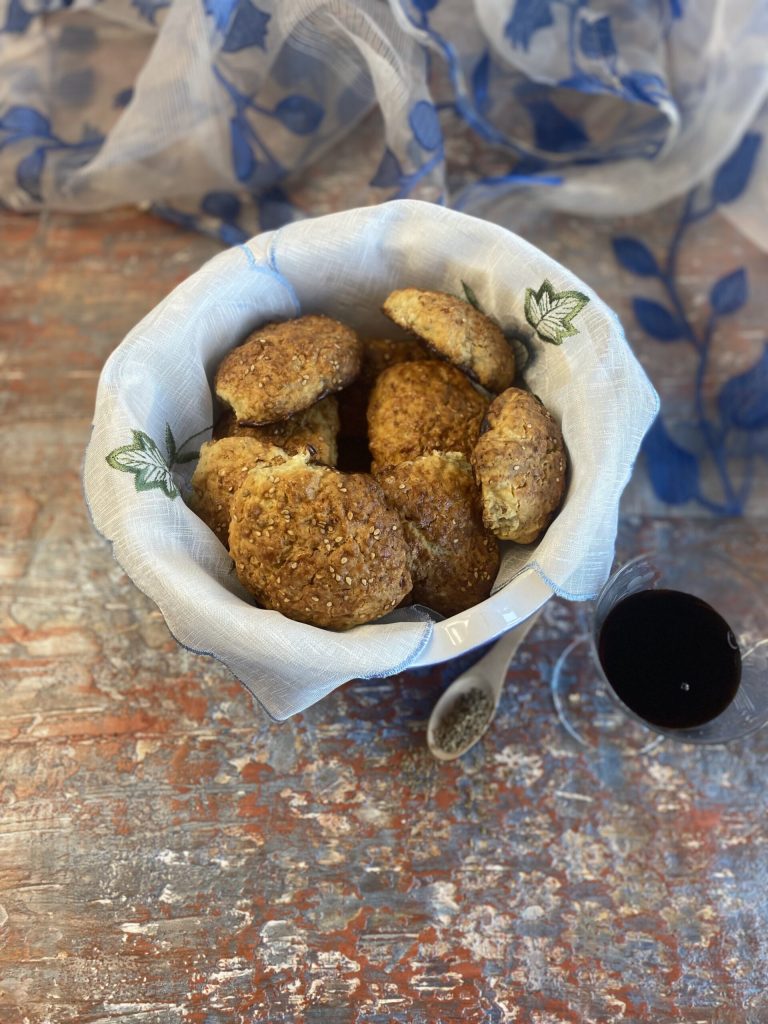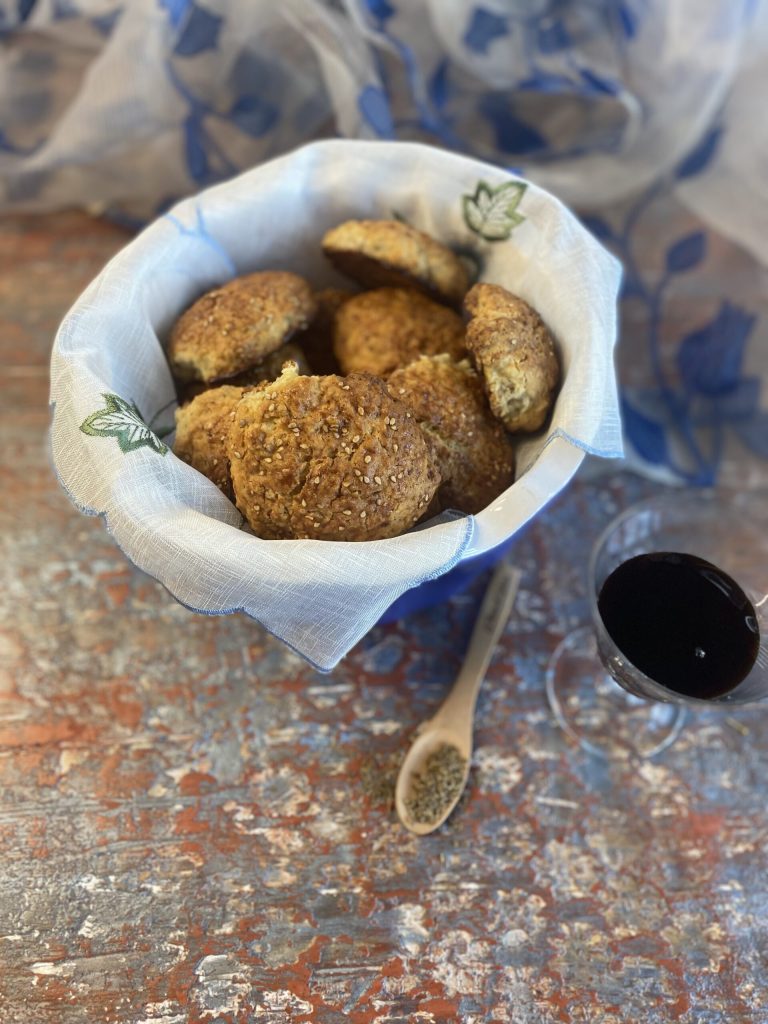The Krachel, or Qrashel or Lgorss, are Moroccan sweet sesame buns, similar to French brioches, made with anise or fennel.
They can be served with tea or coffee and dipped in cheese, olive oil, jam, or honey.
Krachel have been known in Moroccan cuisine at least since the end of the Wattasid era and the beginning of the Saadian era (mid-16th century).
The Wattasid governor Muhammad al-Shaykh of Marrakech was notoriously assassinated with poisoned krachel.
The name can vary from region to region. “Krach” is common in northern Morocco, while “krachet” is common in southern regions.
And the recipe can also vary from region to region, but more commonly includes: milk, eggs, anise seeds, sesame, sugar, yeast, orange blossom water, butter, and flour. Some recipes also add chocolate.

- Difficulty: Easy
- Cost: Very cheap
- Rest time: 2 Hours
- Preparation time: 10 Minutes
- Portions: 12 Pieces
- Cooking methods: Oven
- Cuisine: Moroccan
- Seasonality: All seasons
Ingredients
- 5 oz milk
- 1 egg (+ 1 for brushing)
- 2 tablespoons anise seeds (or fennel)
- 3 tablespoons sesame seeds
- 3/4 cup sugar
- 25 g baking powder
- 1 vial orange blossom essence
- 1/2 cup butter
- 4 cups flour
Steps
Mix the yeast with a few tablespoons of water.
Toast the sesame seeds.
Mix the flour with sugar, add a pinch of salt, sesame seeds, anise, and yeast. Add the egg, melted butter, warm milk, and finally the orange blossom essence.
Form a dough and let it rise for 2 hours.
Shape into 12 small buns.
Brush with a mix of beaten egg, milk, and sesame seeds.
Bake in oven 350°F for 40 minutes.
Serve with cream cheese, olive oil, jam, or honey.

FAQ
Who was Muhammad al-Shaykh?
Abū ‘Abd Allāh Muḥammad al-Shaykh al-Mahdī, al-Sharīf al-Ḥassānī al-Drawī al-Tagmadertī (1490 – October 23, 1557), was the first sultan of the Saadian dynasty to manage to impose his authority over the entire Maghreb al-Aqsa (present-day Morocco), from 1544 to 1557.
He managed to expel the Portuguese from most of their bases in Morocco.
He defeated the rival Wattasid dynasty of Fès and repelled the Ottoman attacks.

